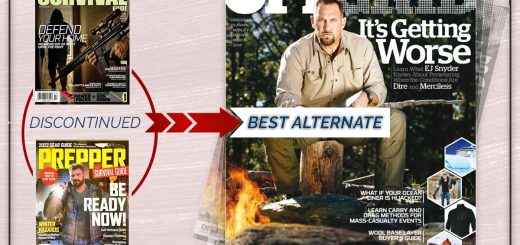7 Tips for Surviving a Flood- Heavy winds, and Flooding Rains, Rivers

Currently, floods are the most common natural disaster in the world.
Flood is an overflow of water from water bodies like the River, Sea, and lake. A flood can also occur due to heavy rain in any particular area, or can also by the accumulation of rainwater. Flood often causes huge damage to human lives along with business too. A flood can develop slowly while a flood can also develop in a few minutes.
Every year, more deaths occur due to floods. Approximately 75% of all disasters are associated with floods.
The common cause of flooding is water due to heavy rainfall that is absorbed by rivers.
Did You Know: Hurricanes, the most violent storms on Earth, are more dangerous because of flooding than high winds; it creates a high risk of flooding.
According to the National Hurricane Center (NHC), a storm surge is one of the biggest threats during a hurricane. A storm surge takes place when strong winds from a hurricane push ocean water ashore. This is an unexpected rise in the seawater level.
- Flooding can occur by the following reasons –
- Prolonged rain falling from several years
- can also occur due to the failure of the water control structure.
- Intense rainfalls over a short period.
- Ice jams also cause floods or streams to overflow the surrounding area.
- At the same time, fortunately, there are plenty of sources you can do in advance to protect yourself and your family from this natural disaster. Big issue and worry after the flood is clean drinking water and sanitation facilities. Personal hygiene is a must after a flood.
Survival tips during and after floods as follows –
Stay Informed- At the time of flood be sure that your eyes are ears are open for emergency service and weather forecast and reports. For weather reports, you can pay attention to your radio or Television. With the help of this, you can better know the difference between Flood watch, possible flood, and Flood Warning, which means the flood is coming or already occurring. So that you can better decide to leave or stay in place.
Hygiene is Must- Flood water can contain dangerous and harmful bacteria, so an individual must focus on personal hygiene. Remember to wash your hands, feet carefully after being exposed to flood water. Protect cuts and wounds with waterproof bandages to avoid infection.
Emergency Kit with essentials – Ready a kit or bag with essentials like dry cloths, Personal IDs, Drinking water, first aid kit, and other essential items that you think important during a flood. You should also ready a kit for your vehicle. Including an axe as well, to break the roof if the water level reaches high enough.
Do not use flood water- Floodwater contains a lot of harmful substances, even after boiling. The floodwater is not even safe for bathing, washing clothes or dishes. This water can lead to health issues and risks. so it is advised during floods only use boiled and cleaned water from a trusted source.
Move immediately to higher Ground- Flash flood can occur any time so be aware of that. If you find any possibility of a flash flood, move immediately to higher ground. No need to wait for instruction to move. Be aware of drainage channels, canyons, and streams, and other areas known to flood suddenly. Flash Flood can occur in these areas even without warning signs, such as rain clouds or heavy rain.
Do not walk Through Moving water- Walk only in water that is not moving. Try not to walk in moving water above your knees or use a stick to check the water level of the ground in front of you. Also, avoid driving on flooded roads. Don’t drive through water if you are unsure how high the water level is.
Avoid driving over a bridge, as floodwaters may have rendered it unsafe, even if it looks okay from your driver’s seat.
Inspect Your Home- Avoid rushing back to home. Floodwater may be contaminated by oil, gasoline, or raw sewage. Water may also be electrically charged from underground or downed power lines. Do not turn the power and gas, first check gas leaks and broken wirings. Check for wild animals that may enter your home and remove them if it is safe to do so. Professionally check all your pipes, wiring, and sewage system before using lights, or water fixtures.
To learn more skills to save yourself during natural or unnatural disasters you should have to go for American survival guide magazine subscription. American survival guide magazines can help to prepare you and your family when disaster strikes. Step by step instructions are given for during flood how can preserve food, Prepare an emergency kit, Prepare first aid list, How to Make water drinkable, How to drive safely, Tread carefully, Seek higher ground, Be ready to leave, How to prepare home for facing a flood.
American survival guide magazine covers the important point that individuals must have to know while they are going to prepare themself from the flood. You can take this Magazine for reference as it covers all important necessary topics of survival during a flood.
More people have been killed in floods. If we refer to history, floods kill more people than other natural disasters. You must be prepared yourself and know what to do in case you are ever faced with a flood. When a flood warning is issued for your area, evacuate. Head for higher ground and stay there until you are told that the area is safe. Hopefully, with these above tips, you will be able to make a good decision and can help protect yourself and your family. You can protect you and your family safely.



